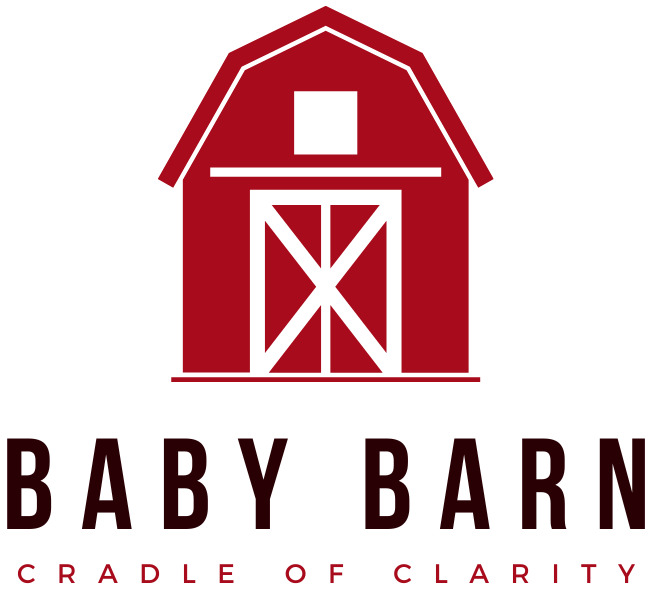Do you ever find yourself wondering if your baby is getting enough milk or formula? It can be a common concern for many new parents. After all, we all want to make sure our little ones are happy and healthy. In this article, we’ll explore some signs that can help you determine if your baby is getting enough milk or formula. From their weight gain to their behavior during feeding, we’ll cover it all. So, if you’re curious to learn more about this topic, keep reading!

Signs of Adequate Milk/Formula Intake
When it comes to ensuring your baby is getting enough milk or formula, there are several signs to look out for. These signs indicate that your baby is receiving adequate nourishment and is satisfied.
Active and Contented Behavior
One of the key indicators that your baby is getting enough milk or formula is their behavior. A well-fed baby will be active, content, and alert throughout the day. They should have periods of wakefulness and playfulness, followed by restful sleep. If your baby seems lethargic or excessively fussy, it may be a sign that they are not getting enough to eat.
Sufficient Diaper Output
Another way to monitor your baby’s milk or formula intake is by tracking their diaper output. A well-fed baby should have at least six wet diapers and several soiled diapers in a 24-hour period. The urine output should be pale and odorless, indicating that your baby is properly hydrated. If you notice a decrease in diaper output or the urine appears dark and concentrated, it may be a sign that your baby is not getting enough to drink.
Weight Gain
A significant sign of adequate milk or formula intake is your baby’s weight gain. In the first few days after birth, it is normal for babies to lose a small amount of weight. However, after the first week, they should start gaining weight steadily. On average, babies gain about 5-7 ounces per week. Your pediatrician or healthcare provider will closely monitor your baby’s weight gain during regular check-ups to ensure they are growing at a healthy rate.
Visible Swallowing
When breastfeeding or bottle-feeding, you can look for visible signs of swallowing. While feeding, your baby’s jaw should move rhythmically as they suck and swallow. This is a positive indication that they are actively consuming milk or formula. If you don’t see any signs of swallowing during a feeding session, it may be a sign that your baby is not effectively transferring milk from the breast or bottle.
Audible Swallowing
In addition to visible swallowing, you may also be able to hear your baby swallow. During feeding, listen for soft, rhythmic swallowing sounds. This indicates that milk or formula is being efficiently taken in. If you don’t hear any swallowing sounds, it could be a sign that your baby is not getting enough to eat.
Monitoring Milk/Formula Intake
Now that you know what signs to look for, let’s explore some ways to effectively monitor your baby’s milk or formula intake.
Tracking Feeding Patterns
Keeping track of your baby’s feeding patterns can provide valuable insight into their intake. Note the time and duration of each feeding session, as well as any additional feedings during the day or night. By establishing a feeding routine and tracking the frequency and duration of feedings, you can ensure that your baby is consistently getting enough milk or formula.
Observing Feeding Cues
Babies have unique feeding cues that indicate when they are hungry or full. By observing and responding to these cues, you can ensure that your baby’s hunger needs are met. Common feeding cues include rooting or searching for the breast or bottle, sucking on their hands or fingers, or making smacking sounds with their lips. On the other hand, signs of fullness may include turning their head away, pushing the nipple away, or falling asleep during feeding.
Feeling Engorgement
For breastfeeding mothers, the sensation of engorgement can be a helpful indicator of milk production. Engorgement is the feeling of fullness and swelling in the breasts, usually occurring a few days after birth. This is a positive sign that your supply is increasing to meet your baby’s needs. However, if you do not experience engorgement or if it subsides suddenly, it may indicate a decrease in milk production.
Using Measuring Cups
If you are formula feeding your baby, using measuring cups can help accurately determine the amount of formula your baby is consuming. Follow the instructions provided by the formula manufacturer to ensure you are preparing the correct ratio of water and formula. By measuring the amount of formula your baby drinks at each feeding, you can monitor their intake and ensure they are receiving enough nourishment.
Seeking Professional Assistance
If you are unsure about your baby’s milk or formula intake, it is always best to seek professional assistance. A pediatrician or lactation consultant can provide guidance and support to ensure your baby is adequately nourished. They can assess your baby’s growth and weight gain, evaluate your feeding technique, and address any concerns or questions you may have.
Breastfeeding as a Measure
Breastfeeding is a natural and beneficial way to nourish your baby. Here are some specific measures you can use to ensure your baby is getting enough milk while breastfeeding.
Skin-to-Skin Contact
Skin-to-skin contact is essential for successful breastfeeding. When you hold your baby against your bare chest, it stimulates their natural instinct to root and breastfeed. This close contact also helps regulate your baby’s body temperature and promotes bonding between you and your little one. By practicing frequent skin-to-skin contact, you can encourage your baby to breastfeed effectively and establish a good milk supply.
Breastfeeding Frequency
Newborn babies have small stomachs that need to be filled frequently. In the first few weeks, it is recommended to breastfeed at least 8-12 times a day. Look for signs of hunger, such as increased alertness, lip smacking, or sucking motions, and offer the breast promptly. By breastfeeding on demand, you can ensure that your baby is receiving enough milk and establish a strong milk supply.
Assessing Latch and Sucking
A proper latch is crucial for effective breastfeeding. Your baby’s mouth should encompass the entire areola, not just the nipple. This ensures that they are able to extract milk efficiently. Additionally, pay attention to your baby’s sucking pattern. They should have strong and rhythmic sucks, with audible swallowing sounds. If you are unsure whether your baby is latching correctly or if you are experiencing pain during breastfeeding, reach out to a lactation consultant for assistance.
Formula Feeding as a Measure
If you are formula feeding your baby, there are specific measures you can take to ensure they are getting enough nourishment.
Calculating Formula Amounts
Formula feeding provides a convenient way to monitor your baby’s intake. Follow the instructions provided by the formula manufacturer to determine the appropriate amount of formula for your baby’s age and weight. By accurately measuring the formula and offering it at regular intervals, you can ensure consistent and adequate feedings.
Recognizing Signs of Fullness
While feeding your baby formula, pay attention to their cues of fullness. As they drink, they may start slowing down, become less interested in the bottle, or turn their head away. These are signs that your baby is reaching their fullness level. It is important not to force your baby to finish a bottle if they are showing these signs, as overfeeding can lead to discomfort or spitting up.
Avoiding Overfeeding
Overfeeding can be a common concern for parents, especially if they are using formula. Unlike breastfeeding, where the milk supply adjusts to the baby’s needs, formula feeding provides a fixed amount of milk. It is crucial to feed your baby based on their hunger cues, rather than finishing an entire bottle. By avoiding overfeeding, you can ensure that your baby is receiving enough milk without causing digestive discomfort.

Factors That Might Affect Milk/Formula Intake
Several factors can influence your baby’s milk or formula intake. Understanding these factors can help you better assess their feeding needs.
Baby’s Age and Growth Spurts
As your baby grows, their milk or formula needs will change. In the early weeks, newborns have small stomachs and require frequent feedings. As they grow older, they may be able to consume more milk or formula in each feeding session and have longer intervals between feedings. Additionally, growth spurts can temporarily increase your baby’s hunger, causing them to want to feed more frequently.
Mom’s Supply and Demand
For breastfeeding mothers, milk supply is based on a supply and demand system. The more your baby breastfeeds, the more milk your body will produce. It is important to establish a good breastfeeding routine and regularly offer the breast to ensure a healthy milk supply. Stress, illness, and certain medications can temporarily affect milk production, so it is essential to take care of yourself and seek support if needed.
Feeding Technique and Positioning
The way you feed your baby can impact their milk or formula intake. With breastfeeding, finding a comfortable position and ensuring a proper latch is key. For bottle-fed babies, using appropriate nipple sizes and holding the bottle at a slight angle can help prevent air ingestion and facilitate a smoother feeding experience. Experimenting with different techniques and positions can help optimize your baby’s feeding process.
Baby’s Health Issues
Certain health issues can affect your baby’s ability to effectively feed and consume enough milk or formula. For example, babies with tongue tie or cleft lip/palate may experience difficulties latching or sucking. If you suspect your baby is having trouble feeding due to a health issue, consult with your pediatrician or a lactation consultant for evaluation and support.
Common Concerns
There are a few common concerns related to milk or formula intake that new parents often encounter. Understanding these concerns can help alleviate any anxiety or uncertainty you may have.
Weight Loss and Jaundice
It is normal for newborns to lose some weight in the first few days after birth. However, if the weight loss is excessive or continues beyond the first week, it may indicate inadequate milk or formula intake. Additionally, jaundice, a condition characterized by yellowing of the skin and eyes, can also affect a newborn’s feeding and weight gain. It is important to consult with your pediatrician to address these concerns and ensure your baby’s nutritional needs are being met.
Slow Weight Gain
While babies typically gain weight steadily, some may experience slower weight gain than others. This can be due to various factors, such as genetics, metabolism, or medical conditions. If your baby’s weight gain is consistently below the expected range, it is important to consult with your pediatrician to assess their growth and determine if any interventions are necessary.
Sleepy or Premature Babies
Sleepy or premature babies may present unique challenges when it comes to ensuring adequate milk or formula intake. Premature babies may have weaker suckling reflexes and may need additional support, such as pumping breast milk or using specialized preemie formulas. If your baby seems excessively sleepy or is not displaying regular feeding cues, consult with your healthcare provider for guidance.
Distracted Feeding
As babies grow older and become more aware of their surroundings, they may become easily distracted during feedings. This can lead to shorter or less effective nursing sessions. Minimizing distractions during feedings, such as finding a quiet and calm environment, can help reduce distractions and ensure your baby’s milk or formula intake.

Consulting a Healthcare Professional
If you have any concerns about your baby’s milk or formula intake, it is always a good idea to consult with a healthcare professional. They can provide guidance and support tailored to your baby’s specific needs.
Pediatrician or Lactation Consultant
Your pediatrician is the best person to assess your baby’s overall health and growth. They can evaluate their weight gain, address any feeding concerns, and provide recommendations for optimizing milk or formula intake. Additionally, a lactation consultant can assist with breastfeeding challenges, offer guidance on proper latching and positioning, and help increase milk supply if needed.
Breastfeeding Support Groups
Joining breastfeeding support groups or attending breastfeeding classes can be beneficial for new parents. These groups provide a supportive environment where you can connect with other breastfeeding moms, share experiences, and seek advice from lactation professionals. Hearing from others who have faced similar challenges can be reassuring and empowering.
Taking Baby for Weigh-ins
Regular weigh-ins can help monitor your baby’s growth and ensure they are consistently gaining weight. Many pediatrician offices offer weight checks and can provide guidance based on your baby’s growth curve. By tracking your baby’s weight over time, you can have a better understanding of their overall feeding progress.
Common Misconceptions
It’s important to address some common misconceptions that parents may have when it comes to milk or formula intake.
Milk/Formula Amount Expectations
It is normal for milk or formula intake to vary among babies. Each baby has unique needs and will consume different amounts of milk. Comparing your baby’s intake to that of other babies can lead to unnecessary worry. As long as your baby is exhibiting the signs of adequate intake and is growing steadily, there is no need to be overly concerned about specific amounts consumed.
Comparing to Other Babies
Comparing your baby’s growth and feeding patterns to those of other babies can create unnecessary stress. Each baby is unique and will have their own individual growth trajectory. It is important to focus on your baby’s specific needs and observe the signs that indicate they are adequately nourished.
Rigid Schedules
While establishing a routine can be beneficial, rigid feeding schedules may not be suitable for all babies. Newborns have different appetite levels and may require frequent feedings. It is important to respond to your baby’s hunger cues and feed them when they are showing signs of hunger, rather than strictly adhering to a fixed schedule. A flexible approach can help ensure your baby’s nutritional needs are met.
Additional Tips for Ensuring Adequate Milk/Formula Intake
Here are some additional tips to help promote adequate milk or formula intake.
Quality of Milk/Formula
Ensuring that the milk or formula you provide is of high quality is essential for your baby’s nutrition. If you are breastfeeding, make sure you are maintaining a healthy diet and staying hydrated. For formula feeding, choose a reputable brand and carefully follow the preparation instructions to ensure your baby is receiving the appropriate nutrients.
Proper Relaxation and Nutrition
Taking care of yourself is crucial for maintaining a healthy milk supply and ensuring optimal milk or formula intake for your baby. Make sure to take time to relax, eat nutritious meals, and stay hydrated. Adequate rest and self-care can positively impact your breastfeeding journey or formula feeding experience.
Seeking Support and Encouragement
Feeding a baby can sometimes feel overwhelming, especially for first-time parents. Seek support from your partner, family members, or friends who have gone through the same experience. Sharing your concerns and seeking encouragement can help alleviate stress and build confidence in your ability to provide for your baby’s nutritional needs.
Conclusion
As a parent, it is natural to worry about whether your baby is getting enough milk or formula. By recognizing the signs of adequate intake, monitoring feeding patterns, and seeking professional guidance when needed, you can ensure that your baby is well-nourished and thriving. Remember, every baby is unique, and what matters most is that your baby is exhibiting the signs of healthy growth and development. Trust your instincts, seek support when needed, and enjoy the precious moments spent feeding and bonding with your little one.





